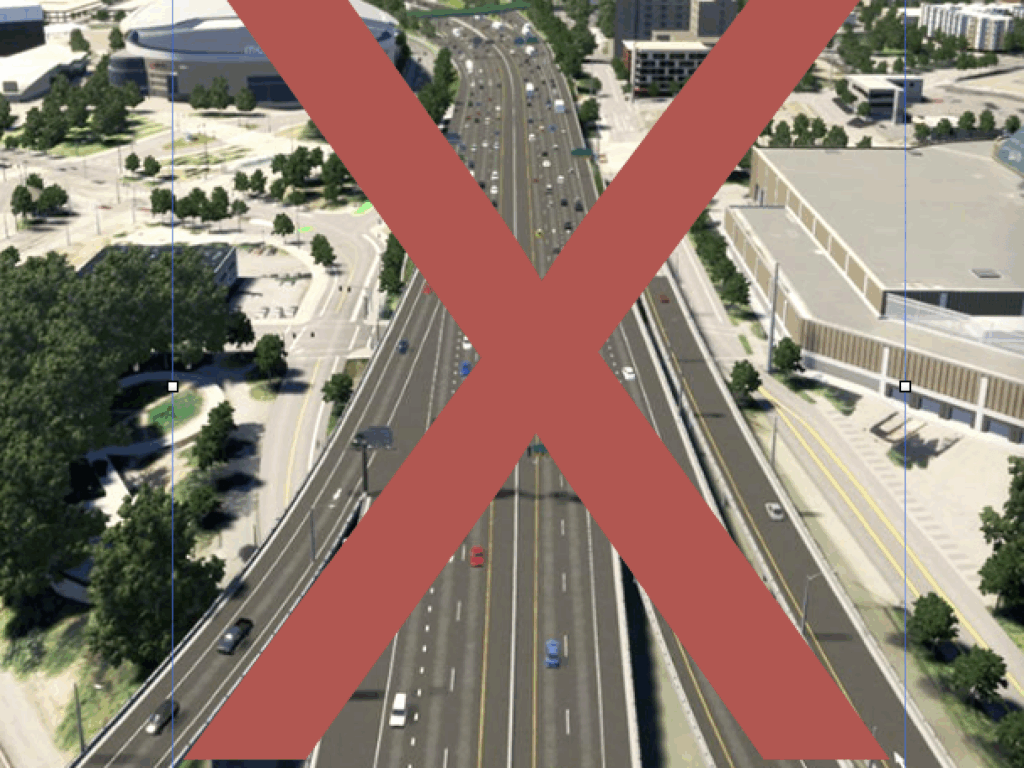Politico’s survey of experts leaves out the most important challenges, in our humble opinion.
A couple of weeks back, Politco, the wonky-insider beltway news source queried a dozen of the nation’s urban thought leaders about the biggest crises facing cities in the years ahead. “What’s the greatest risk that cities face?
Mayors, Governors, scholars, think tank denizens and others all offered up their thoughts. It’s a classic summertime policy expert listicle. But what should be a slam dunk actually falls short of putting its finger on the real threats.
But let us start from offering our own “greatest risks”–which are unfortunately missing from Politico’s litany.
First, there’s the issue of concentrated poverty. Our work–and the work of innumerable scholars of far greater pedigree–confirms that concentrated poverty is one of the most pernicious and growing blights on the nation’s cities. As bad as it is to be poor anywhere, all of the negative effects of poverty are amplified when one lives in a neighborhood where a high fraction of one’s neighbors are also poor. Crime is higher, public services are worse, education and economic prospects are slim. The work of Raj Chetty, and others shows that kids growing up in these neighborhoods have permanently lower life prospects as a result. Breaking down concentrated poverty–which has actually been increasing–is the greatest risk for many cities. The closest anyone came was former Maryland Governor Martin O’Malley, who framed the issue as one of income inequality, a related, but actually different problem.
To that we can add a second, and related problem: housing affordability. The growing demand for urban living has pushed up rents in many of the nation’s cities, and and is a challenge both to economic growth and opportunity.
And surprisingly, as long as we’re talking about great risks, its remarkable that no one mentioned climate change. Climate change is arguably an existential threat to civilization, and cities have a key role–due to their inherent greenness–in fashioning a solution.
Of the risks to cities flagged by Politico’s experts, we were most impressed by the case made by Brookings Institution’s Jennifer Bradley. She makes a subtle but important point about the the civic commons. Too often, we’ve let “public” become a synonym for second rate. Bradley makes a strong case that we need to do better in the public realm, and make cities, and public spaces and public services places of pride and utility for everyone:
America’s cities have never fully realized their promise of opportunity and integration, but to the extent that mixing and advancement happens, it is supported by a robust public realm where people can come together and know each other as fellow residents; by strong public schools that prepare a city’s children and introduce them to each other; by extensive public transit that overcomes neighborhood isolation. Public shouldn’t mean “for use by the poor.” It should mean “for the good of all of us.”
Other problems are real and deserve mention. Former North Carolina Governor Pat McCrory and Manhattan Institute Fellow Stephen Malanga appropriately reminds us that too many cities have massive unfunded pension liabilities that threaten their ability to provide public services. Former Memphis Mayor A. C. Wharton points out that conservative state legislatures have greatly limited the ability of cities to tackle important urban problems by preempting their authority. Brookings’ Amy Liu points out the big gap in labor market outcomes between whites and most people of color (a serious problem, that is more than just urban).
Bruce Katz–also of Brookings–calls out Washington DC as the threat to cities, and argues for greater local initiative: cities can’t wait for Washington to solve their problems. We agree that Washington DC is a threat to cities, but not for this reason. So much of what the federal government does, in tax policy, in maintaining (or dismantling) the social safety net, is likely to have enormous impacts on cities. For example, if the Affordable Care Act (Obamacare) is shredded, cities will be left to deal with a growing population of uninsured. Similarly, if the Federal Reserve decides that we’re at full employment, and starts reining in the economy. every city’s economic development problems will become that much more difficult.
David Dudley, who edits CityLab, points out that the advent of autonomous vehicles could pose as big a threat to cities as did the automobile a century ago. We think he has a good point. And as technological issues goes, we think this is a much more pressing problem than the presence of so-called broadband deserts (which are the threat identified by the New America Foundation, which not surprisingly,
But some of what experts have labeled threats strike us as, at best pet peeves. Winner for most obscure–and probably imaginary threat–skyscrapers. Saskia Sassen seems to think we’re imperiled by tall buildings. (Given the effects of single family zoning on housing affordability and economic segregation, we’re inclined to think that the reverse is true: our cities are imperiled more by too many short buildings than too many tall ones.) Harvard’s Diane Davis and Lily Song lament the present unevenness in the uptake of new mobility services like ride-hailing and bike sharing (but this inequity strikes us as wholly subsidiary to the dominance of private auto transportation in most cities).
Regardless of whether you agree with us (or any of Politico’s experts) its a great question to reflect on in the summer: What are the greatest risks confronting cities in the year or years ahead.
We’ve got our list: economic segregation, housing affordability, climate change and revitalizing the civic commons. What’s yours?

